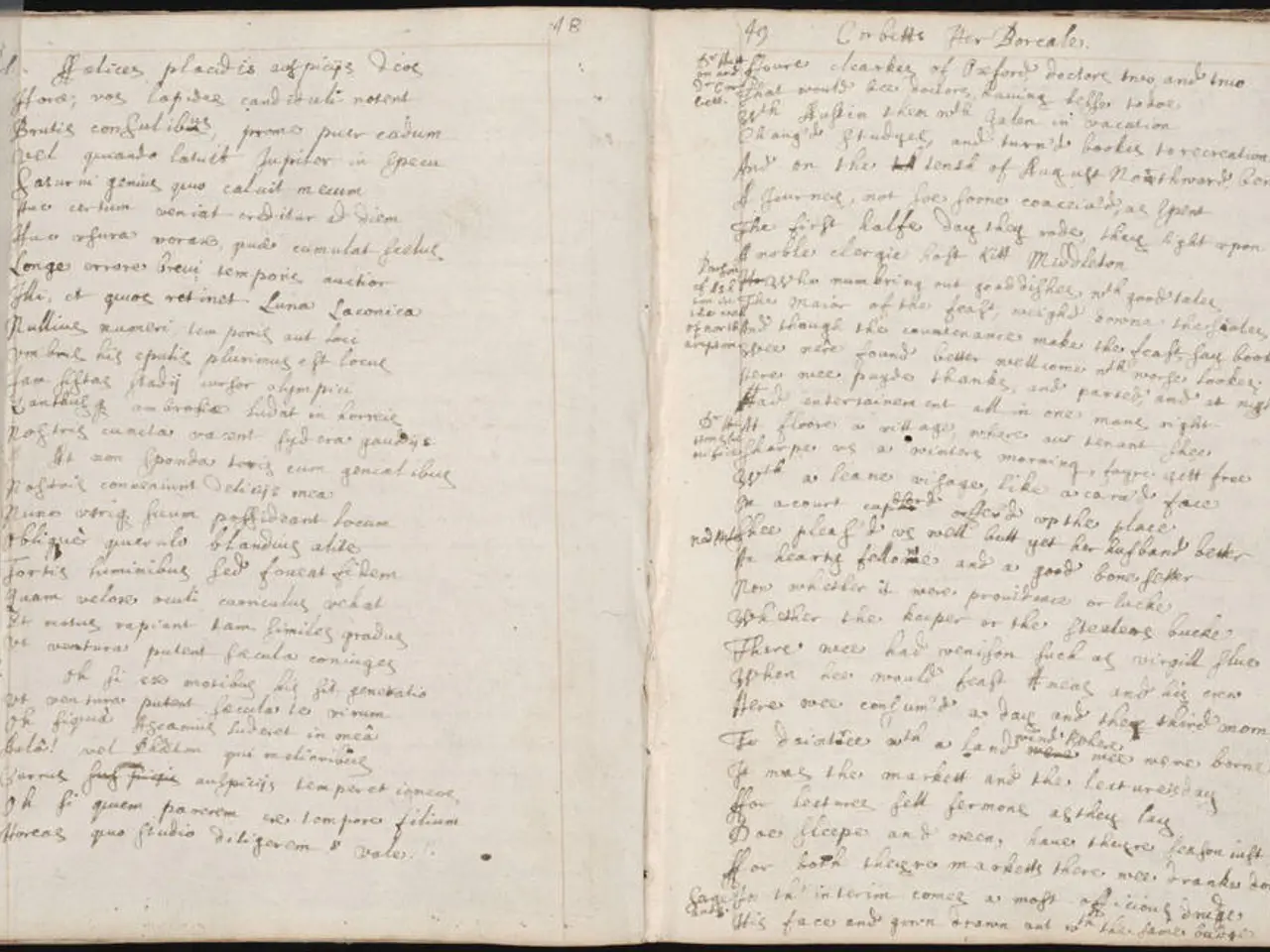China Dismisses US 'Trade Conflict' over Venezuela as PDVSA Oil Exports Decrease
Titled: China Slams U.S. Trade War Over Venezuelan Oil Sanctions
March 27, 2025 - Friction erupted between the Trump administration and China, following the latter's criticism of the U.S.'s "tariff war" after the threat to impose 25 percent "secondary tariffs" on goods from nations buying Venezuelan oil and gas.
During a regular news conference, Chinese Foreign Affairs Ministry spokesperson Guo Jiakun voiced his concerns, urging the U.S. to cease its intervention in Venezuela's internal affairs and abolish unfair unilateral sanctions. He argued that Washington has long exploited unilateral sanctions and long-arm jurisdiction to target other nations, and called for the U.S. to lift its coercive measures on Venezuela. Jiakun emphasized that these tariffs would negatively impact U.S. businesses and consumers.
Similarly, Mexico's Claudia Sheinbaum condemned the tariff measure, stating that economic sanctions primarily harm citizens rather than governments. Cuban President Miguel Díaz-Canel criticized Washington for its ongoing efforts to "economically asphyxiate" the Venezuelan people.
On March 25, 2025, President Trump signed an Executive Order establishing possible 25 percent taxes on all goods from countries that import Venezuelan energy resources, either directly or indirectly. The tariffs would be discretionary and enforced through the Department of Commerce, to be determined by Secretary of State Marco Rubio once the department establishes that a country has received Venezuelan oil and gas shipments.
The White House stated that this action aimed to "sever the financial lifelines" to the Venezuelan government, and convey that access to the U.S. economy is "a privilege, not a right." The tariffs, effective April 2, would remain in place for one year following the last import of Venezuelan oil or may be lifted earlier at the discretion of U.S. officials. The U.S. also announced that the tariffs would extend to Hong Kong and Macau to prevent circumvention of these restrictions.
Details on how these secondary tariffs would be enforced were not provided. In recent years, Venezuelan oil traders have developed strategies to evade tracking and disguise shipment origins. The Trump administration justified the tax as retaliation for the alleged threat posed by the Tren de Aragua gang, a foreign terrorist organization designated in January. Trump accused the Venezuelan authorities of failing to take action against the criminal organization.
Venezuelan officials assert that they dismantled the gang's operations in Venezuela in 2023. The Maduro government argues that the gang narrative is being used as a pretext by the U.S. to forcibly expel Venezuelan migrants, with 238 unlawfully sent to a prison in El Salvador earlier this month. Caracas has accused Washington of waging an economic war against the nation, violating international trade rules and human rights.
Analysts predict that the recent Trump measures may hurt oil revenues, potentially triggering renewed inflation. The Maduro administration has vowed to continue strengthening the oil industry. Since 2017, the U.S. has implemented financial sanctions, an export embargo, and secondary sanctions against the Caribbean nation, forcing it to offer steep discounts and rely on unreliable intermediaries for crude sales.
The tariff threat is the latest escalation of the U.S.'s economic aggression against Caracas. In early March, the U.S. Treasury Department ordered Chevron to wind down its activities in Venezuela, including crude extraction and exports, within a 30-day period. However, the deadline was later extended to May 27. Chevron had been operating under Office of Foreign Assets Control (OFAC) General License 41 since November 2022.
Impacts of the tariffs on Venezuela's oil sector are already being seen, with loading slowdowns and shipping delays in the country's main ports. According to reports, trade of Venezuelan crude to China stalled on Tuesday following the tariff order while Chevron began reducing its tanker fleet, chartering only seven oil cargoes this month, compared with 15 in February consisting of 252,000 barrels per day (bpd). It remains unclear whether European firms will be ordered to wind down their operations in their joint ventures with PDVSA.
China, as the largest importer of Venezuelan oil, is heavily impacted by this tariff and may switch to Russian oil rather than pay the additional 25 percent tariff on goods imported into the U.S. Mexico, part of the USMCA trade agreement, is also affected by related tariff dynamics and may reduce or cease Venezuelan oil imports to avoid secondary tariffs. Europe faces the threat of tariffs on countries that purchase Venezuelan crude and gas.
Edited by José Luis Granados Cejas in Mexico City and Ricardo Vaz in Caracas.
- The Chinese Foreign Affairs Ministry spokesperson, Guo Jiakun, warned against the U.S.'s unilateral implementation of tariffs on goods from nations buying Venezuelan oil and gas, arguing that it would negatively impact U.S. businesses and consumers.
- In 2023, Venezuelan officials asserted that they had dismantled the Tren de Aragua gang's operations, countering the U.S.'s use of the gang narrative as a pretext for economic aggression.
- Analysts predict that the U.S.'s tariffs on Venezuelan oil and gas, set to take effect in April 2025, may hurt oil revenues and potentially trigger renewed inflation, while the Maduro administration vows to continue strengthening the oil industry.
- China, as the largest importer of Venezuelan oil, is heavily impacted by the tariff and may switch to Russian oil rather than pay the additional 25 percent tariff on goods imported into the U.S.
- Mexico, a part of the USMCA trade agreement, is affected by related tariff dynamics and may reduce or cease Venezuelan oil imports to avoid secondary tariffs.
- Europe faces the threat of tariffs on countries that purchase Venezuelan crude and gas, adding to the ongoing political and economic tensions in the oil-and-gas industry, policy-and-legislation, and general news.









